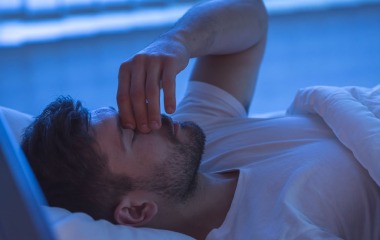
Follow WOWNEWS 24x7 on:

In an exciting development for millions struggling with sleep issues, new scientific research has identified a specific form of exercise as the most effective for improving sleep quality. As sleep disorders continue to affect global health and productivity, this discovery opens up promising avenues for non-pharmacological interventions to promote restful and restorative sleep naturally. Experts emphasize the potential of tailored physical activity routines to address common challenges like insomnia, fragmented sleep, and daytime fatigue.
Here is a detailed exploration of the study findings, how this exercise benefits sleep, and practical guidance for incorporating it into daily life.
Key Insights Into The Exercise-Sleep Connection
Researchers conducted controlled trials comparing various exercise types—including aerobic, resistance, flexibility, and mind-body practices—on their impact on sleep patterns.
The standout exercise for sleep enhancement was aerobic activity, particularly moderate-intensity brisk walking or jogging.
Participants engaging in regular aerobic exercise experienced deeper, longer-lasting slow-wave sleep, also known as deep sleep, crucial for physical recovery and memory consolidation.
Improvements were noted in sleep onset latency (falling asleep faster), reduced nighttime awakenings, and overall subjective sleep satisfaction.
The benefits extended across different age groups, genders, and individuals with mild to moderate sleep disturbances.
Why Aerobic Exercise Tops Sleep Improvement
Aerobic exercise positively affects sleep through multiple physiological and psychological mechanisms:
Body Temperature Regulation: Physical activity raises core temperature, and the subsequent post-exercise temperature drop facilitates natural sleepiness.
Stress Reduction: Aerobic workouts decrease cortisol levels and elevate endorphins, alleviating anxiety and promoting relaxation conducive to sleep.
Circadian Rhythm Synchronization: Regular exercise helps stabilize the body’s internal clock, making sleep-wake cycles more predictable.
Enhanced Brain Function: Increased brain-derived neurotrophic factor (BDNF) production supports neural health linked to better sleep architecture.
How To Maximize Sleep Benefits From Aerobic Exercise
Timing matters: Exercising at least 3-4 hours before bedtime is ideal, as late-night intense activity may interfere with sleep onset for some individuals.
Consistency is key: Engaging in aerobic sessions 4-5 times per week produces optimal results.
Duration: Aim for 30 to 60 minutes per session, adjusting intensity to suit fitness levels.
Variety: Brisk walking, cycling, swimming, or jogging all qualify as effective aerobic activities.
Complementary practices: Pair aerobic workouts with relaxation techniques like stretching or meditation to further enhance sleep quality.
Comparing Other Exercise Forms And Their Sleep Effects
While aerobic exercise leads the pack, other forms also contribute positively, albeit to a lesser degree:
Resistance training shows moderate improvements in sleep efficiency and reduced insomnia symptoms.
Mind-body exercises such as yoga and tai chi enhance sleep by lowering stress and improving breathing patterns.
Flexibility and balance exercises help older adults maintain mobility and indirectly support better sleep health.
Expert Recommendations On Exercise For Sleep Health
Healthcare professionals recommend incorporating aerobic activity as part of holistic sleep hygiene alongside good sleep habits such as maintaining a regular schedule, limiting screen time before bed, and creating a comfortable sleep environment.
Individuals with severe sleep disorders should consult sleep specialists for tailored interventions that may combine exercise with other therapies.
Broader Implications For Public Health
Given the widespread prevalence of sleep problems and the risks of medication dependency, promoting aerobic exercise as a simple, accessible lifestyle change offers significant benefits. Better sleep correlates with improved mental health, cardiovascular function, metabolic regulation, and overall quality of life.
Conclusion: Moving Toward Restful Nights Through Active Days
The emerging scientific consensus positions aerobic exercise as a powerful, natural remedy to enhance sleep quality, helping people fall asleep faster, sleep deeper, and wake up refreshed. By embracing regular aerobic activity, individuals can reclaim restful nights and support long-term health without reliance on pharmacological solutions.
Sources: National Sleep Foundation, Journal of Sleep Research, Mayo Clinic, Harvard Health Publishing






